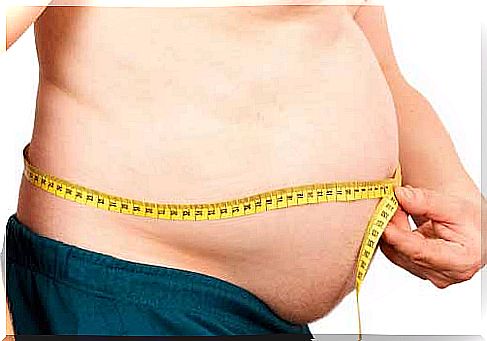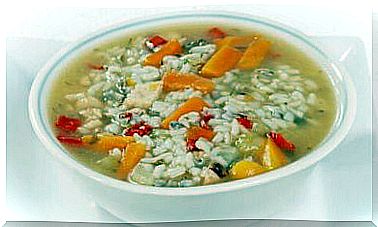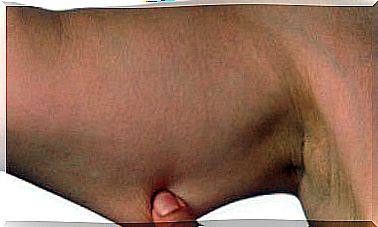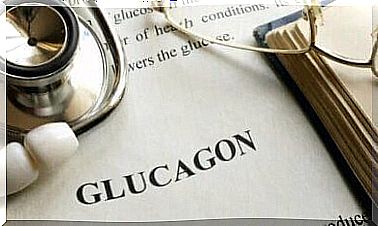Benefits And Side Effects Of Gastric Bypass
Gastric bypass has become an effective routine intervention. Many people with serious overweight problems have experienced it without side effects and with great success, but always following the directions of the attending physicians.

Gastric bypass involves reducing the size of the stomach and connecting it directly to the small intestine. In this way, the food passes through part of the small intestine. This decreases the absorption of calories and nutrients. As the stomach is smaller, the amount of food that can be eaten will be smaller. Likewise, the feeling of fullness will come more quickly.
This surgery is ideal for people with severe obesity who need to lose weight and whose diets haven’t worked. It is also a highly recommended surgery for people with severe obesity issues. Because weight loss also solves many problems of joints, spine, circulation, among others, caused by overweight.
All surgeries have side effects and risks. But in the most severe cases, failure to perform this intervention can endanger the health of the patient due to diseases associated with excess weight. The site “ Obesidad UC” recalls that the gastric bypass is “the most frequent obesity surgery in Chile and in the world”.
Regarding the success of this surgery, Obesity UC points out that “The gastric bypass has a high efficiency resulting in a weight loss of 60% to 70% in one year and a significant improvement in associated diseases.”
The advantages of gastric bypass

- It is especially recommended for people with a body mass index greater than 4. This is a situation in which they may experience serious health problems.
- It is a very effective surgery to fight obesity and with easy recovery.
- Permanent weight loss: up to 70% of body weight. This loss usually occurs within 6 to 12 months. Although, many people continue to lose weight for up to 24 months after surgery.
- Post-operative recovery is also quick and easy. Patients can usually go home after 3 days of hospitalization. And between 8 and 10 days after the operation, they return to normal activity.
- Because of its safety and effectiveness, in addition to good results, this intervention has become one of the preferred choices when it comes to investing in health.
Like any intervention, it involves certain short and long-term risks. And the risk also always depends on the situation of each patient. Gastric bypass is one of the best options for safe and effective weight loss.
It is advisable to do this with the best professionals and, of course, to maintain a correct diet and healthy lifestyle.
Side effects
Side effects or undesirable effects are those which occur when the patient does not respect the dietary prescriptions, nor the care recommended by the treating physicians. Here are some of them:
1. Nutritional deficiency
Some essential nutrients (iron, calcium) pass only through part of the intestine. Therefore, they are not completely absorbed by the body. This leads to deficiencies of these nutrients, which can lead to other problems such as anemia and osteoporosis. Therefore, vitamin intake is essential to remedy these deficiencies.
2. Undernutrition
Another consequence of deficiencies in certain essential nutrients is that the body becomes more prone to infections of all kinds. Indeed, the immune system weakens and the defenses decrease.
3. Gastric dumping syndrome

Gastric dumping syndrome is a feeling of abdominal discomfort that appears 20 minutes after eating food. This discomfort results in cramps and nausea. It occurs because of fatty foods which bring fluids to the intestines. In addition, it manifests itself as irritation and sudden expansion of the intestine, causing great discomfort like cramping and loose stools.
This discomfort occurs when the patient has consumed too many foods high in fat or sweets. That is to say when he has not respected the dietary recommendations. It is important to gradually change your diet and choose the healthiest and most natural foods. The more natural they are, the less harmful effects on digestion will be felt.
4. Intestinal obstruction
A feeling of severe abdominal pain with cramping and a feeling of plugging may occur. This may be due to an accident during the operation, when a part of the intestine is inserted into another part. However, the risk of this happening is low.
Recommendations to follow after the procedure
- Maintain a liquid diet as directed by medical specialists. The goal is to gradually incorporate solid foods.
- Follow all the indications of the attending physicians. In this case, the recovery will be quick and easy.
- Vitamins and nutritional supplements are needed due to changes in the digestive system.
- It is essential, as before any intervention, to be informed of everything concerning the consequences of this operation. The treating physicians study the case in a personalized way and indicate what is most appropriate in each case.









